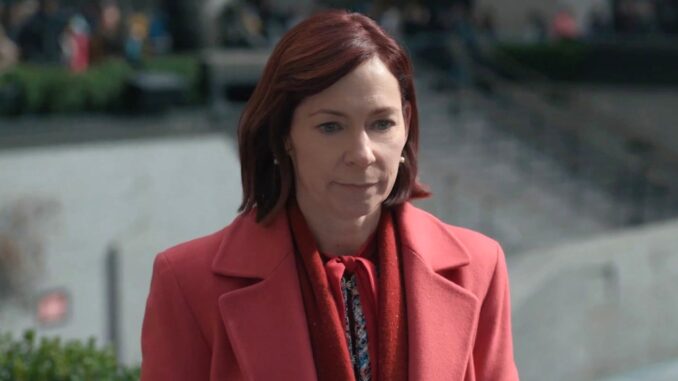
The curtain of expectation often shimmers with an almost palpable energy when a beloved public figure steps into a new, yet eerily familiar, role. Such was the case with the "first look" at Stephen Colbert gracing the set of CBS's Elsbeth, not merely as a guest star, but as a late-night host. It wasn't just casting; it was a meta-theatrical event, a delightful collision of reality and artifice, a wink to the audience that transcended mere entertainment to become a commentary on persona itself.
Imagine the scene: the familiar desk, the carefully positioned microphone, the warm glow of studio lights, the bandleader perhaps nodding in the background. And there he stands, impeccably suited, a familiar glint behind his glasses, navigating the delicate dance of monologue and self-deprecation. The immediate impact is a delicious cognitive dissonance, a playful tug-of-war between the Stephen Colbert we invite into our homes five nights a week on The Late Show, and the fictionalized version he is ostensibly portraying within the quirky, sharp universe of Elsbeth. It’s a mirror reflecting a reflection, a funhouse of public image where the real and the enacted blur into a compelling, often humorous, spectacle.
What makes this "first look" so illustrative is not just the sight of Colbert behind a desk, but the layers of history and persona he brings to it. For years, as the bombastic, self-aggrandizing pundit on The Colbert Report, he meticulously crafted a character so distinct, so deeply ingrained in the cultural lexicon, that his transition to the more "authentic" (though still carefully curated) persona of The Late Show host felt like a revelation. Now, he's taking a step further, playing a character who is a late-night host. This isn't just an actor playing a part; it's a maestro of meta-humor navigating a theatrical mise-en-scène he knows intimately from the inside out.
The beauty lies in the subtle nuances. One might observe a slight tightening of the jaw, a particular cadence in his delivery, or a glint in his eye that signals: "Yes, I know you know, and I'm having fun with it." He doesn't need to overplay the role; his very presence in that environment, given his real-world career, does all the heavy lifting. He embodies the archetype of the late-night host with an authenticity born not just of acting skill, but of lived experience. He knows the rhythm of the monologue, the subtle art of the segue, the performative warmth required to connect with a studio audience and millions at home. He’s not just mimicking; he’s inhabiting a slightly distorted version of his own professional self.
Moreover, Elsbeth itself is the perfect canvas for such an illustrative moment. A spin-off from the acclaimed Good Wife and Good Fight universe, Elsbeth thrives on its unique blend of sharp legal mysteries, eccentric characters, and a distinct, often whimsical, take on New York City and its inhabitants. It's a show that isn't afraid to play with expectations, to revel in the absurd, and to offer a sophisticated, knowing wink to its audience. Colbert's appearance as a late-night host fits seamlessly into this world, adding another layer of commentary on celebrity, media, and the performative nature of public life. It’s an intellectual Easter egg for viewers, a reward for their shared understanding of the cultural landscape.
The "first look" at Stephen Colbert as a late-night host on Elsbeth is more than just a casting choice; it’s a brilliant stroke of narrative and character synergy. It invites us to consider the fine line between performer and performance, between the public face and the private self. It’s a testament to Colbert's versatility and intelligence, and a delightful reminder that sometimes, the most engaging stories are those that dare to play within the very conventions they inhabit, turning the familiar into something fresh, illustrative, and utterly compelling. It’s not just seeing a host; it’s seeing the very idea of hosting, refracted through a knowing, brilliant lens.
